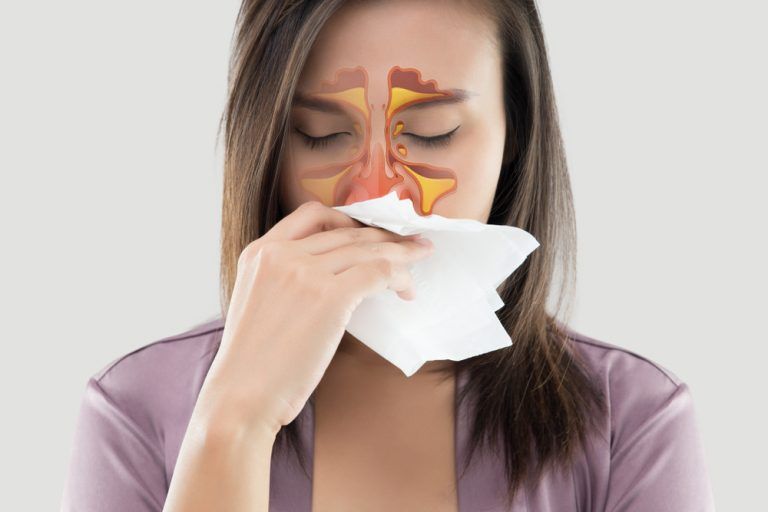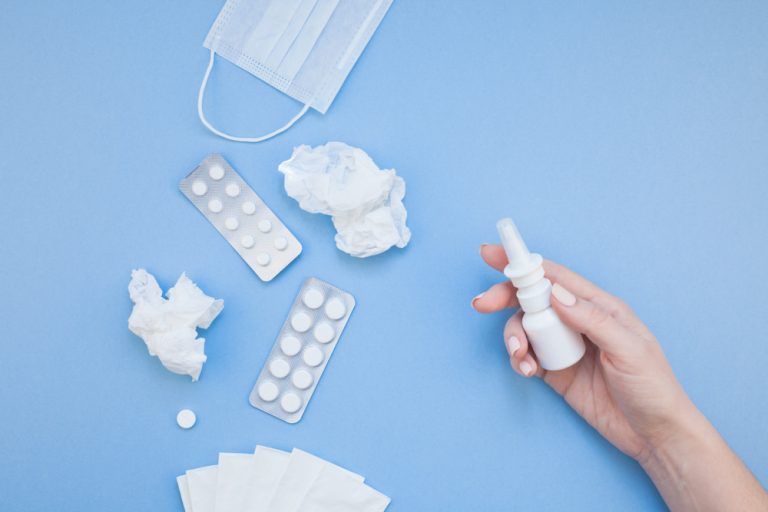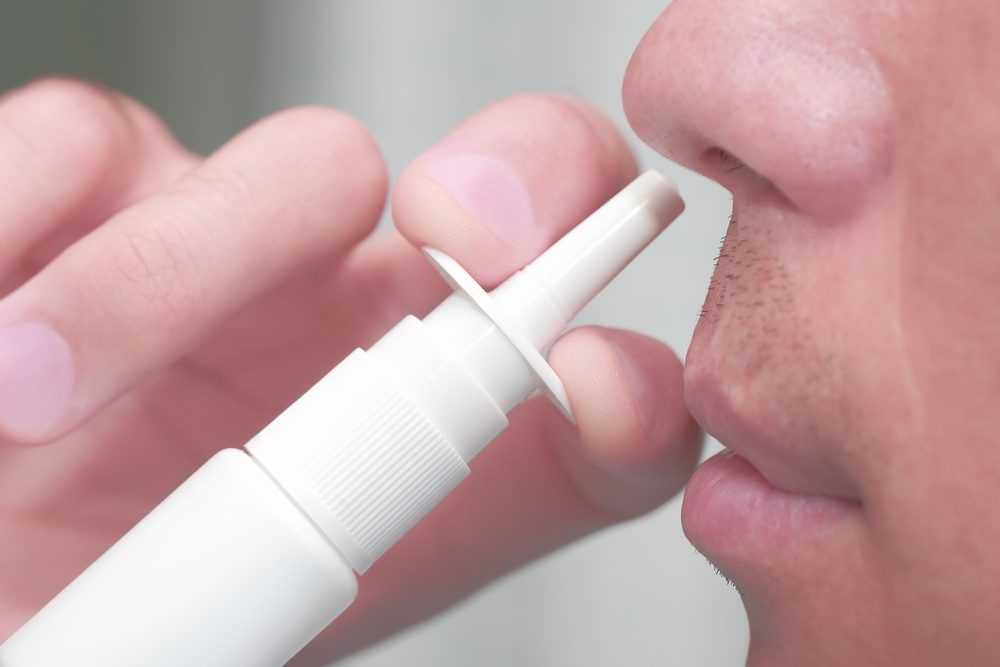How Flonase Works: Understanding the Science of Nasal Steroids
Flonase is a brand-name fluticasone nasal spray used to treat seasonal and year-round allergies. It’s a corticosteroid medicine that treats allergy-caused inflammation or irritation of the nasal lining, also called allergic rhinitis. (Learn More) Allergies occur when the body’s immune system has a hypersensitive response to a normally harmless substance it encounters. Common allergens include dust mites and pollen. Allergies can be seasonal or year-round. (Learn More) Flonase and other nasal sprays work mainly by reducing swelling and irritation in the nasal lining, where they are applied topically through a squirt or spray action. (Learn More) Nasal steroids have been on the market for over 30 years, and they are considered safe and effective. They are nonaddictive and have minimal side effects. (Learn More) Because they can take up to two weeks to fully work, nasal steroids are not a good choice for fast relief of nasal allergy symptoms. They can also cause nasal dryness. (Learn More) Although there appears to be little difference between nasal steroid sprays, some people may find they have a preference or better reaction to a specific spray over another. Flonase does have side effects, which are most commonly nosebleeds and headaches. These sprays also have potential risks, which may include an increased possibility of certain eye diseases and the possibility of it being harder to fight off infections and illnesses. Certain populations may be at a higher risk of side effects and complications. (Learn More)

What Kind of Drug Is Flonase?
Flonase is a brand-name fluticasone nasal spray. It is generally used to treat allergies. Flonase is a corticosteroid medicine, meaning it uses steroids to treat swelling or tenderness in the nasal lining, also called allergic rhinitis. These are different steroids than the anabolic steroids used by some athletes or bodybuilders. Flonase may also be described as an intranasal corticosteroid spray, a steroid nasal spray, or a topical steroid spray.
Understanding Allergies

Allergies occur when the body’s immune system has an overreaction to a substance it encounters. Though the substance is normally innocuous, the immune system doesn’t view it as such. The substance could be something that is consumed, or it might just come into contact with the body in some way. Common allergens include pet dander, dust mites, pollen, and bee venom, but any substance can be an allergen if the body has an allergic reaction to it. Generally, the body isn’t allergic to an allergen right away. The allergic reaction develops over time, depending on the body’s response to the substance, during a process called sensitization. A person’s immune system takes time (anywhere from days to years) to develop a sensitivity to the substance before it reacts with allergic symptoms or a full-on allergy. During sensitization, as a sensitivity to the substance is being developed, the immune system starts to build antibodies, called immunoglobulin E (IgE), to fight the substance. After the hypersensitivity has formed, the immune system will release these antibodies when the allergen is encountered. This triggers the release of inflammation-causing substances like histamine. People can develop allergies at any age. Anyone can experience seasonal allergies, also called hay fever.
How Does Flonase Help Allergies?
Steroids produce hormones that mimic the hormones produced by the body’s adrenal glands (two small glands located above the kidneys). As a corticosteroid, Flonase and other nasal sprays work by reducing inflammation and irritation in the nasal lining, where they are applied topically. Although it is unknown exactly how steroids suppress inflammation, one manner in which they do is by reducing the level of inflammation-causing chemicals called cytokines and chemokines. Research also indicates that nasal corticosteroids may interrupt other pathways of the nasal reaction to a learned allergen.
What Are the Benefits of Nasal Steroids Over Other Allergy Drugs?

Nasal corticosteroids are very effective in treating certain allergy symptoms, specifically the irritation and inflammation of the lining of the nose. In fact, the American College of Allergies, Asthma, and Immunology (ACAAI) states that intranasal corticosteroids are “the single most effective drug class for treating allergic rhinitis”. Nasal steroids have been on the market via prescription for over 30 years. Data has shown them to be safe and effective with limited whole-body side effects. Because of their efficacy and ease of use, nasal steroids are considered by many medical professionals to be the first choice for treating nasal allergy symptoms. Flonase and some other nasal corticosteroids are available over the counter, making them easier and more convenient to obtain than prescription varieties. Unlike decongestant nasal sprays, nasal steroids like Flonase are not addictive. They are considered safe for daily, short-term use.
Are There Disadvantages to Taking Flonase?
Nasal steroids can take up to two weeks to fully take effect. You are unlikely to find immediate relief from nasal allergy symptoms after using them or even after a few uses. Nasal steroids can cause the lining of the nose to dry out. Allergy sufferers may not realize that nasal steroids take longer to work than other nasal sprays, like nasal decongestants. As a result, they could take higher doses of a nasal spray than needed. For this reason, some people are against the idea of nasal steroids being available over the counter rather than by prescription only. Most research shows little difference in the effects of different nasal corticosteroid sprays on allergic rhinitis symptoms. There are subtle variances in different medicines, and some people may react better to a certain variation. Someone may have a preference for one spray over another or show fewer side effects with a specific product.

Do Nasal Steroids Have Any Side Effects or Dangers?
When used as directed, Flonase and other nasal corticosteroids are considered very safe, although there are possible side effects and risks associated with use. Side effects may include the following:
Headache
Nosebleed
Irritation of the nose
Bloody mucus
Nausea or vomiting
Dizziness
There are possible risks associated with the use of Flonase or other nasal steroids.
Due to immune system suppression (a side of effect of hormone use), it may be harder to fight off infections or manage illnesses, asthma attacks, or injuries.
Users may be at a higher risk of osteoporosis, a condition that affects bone density.
Users may be at higher risk of developing cataracts or glaucoma.
Individuals starting Flonase or any medication should consult with their doctor before doing so. This is especially important for people who are on other medications or pregnant as well as those who have experience with or a family history of the following:
Poor eye health, including glaucoma or cataracts
Tuberculosis
HIV
Recurring infections, like herpes
Liver disease
Diabetes
References
Nasal Steroid Sprays for Allergies. (November 1, 2018). Verywell Health.
Immunoglobulin E (IGE) Definition. American Academy of Allergy, Asthma, and Immunology (AAAAI).
Flonase Nasal Spray for Over-the-Counter Allergies Treatment. (March 16, 2019). Verywell Health.
Everything You Need to Know About Allergies. October 24, 2017. Medical News Today.
Mechanisms of Intranasal Steroids in the Management of Upper Respiratory Allergic Diseases. (October 1999). Journal of Allergy and Clinical Immunology (JACI).
Allergic Rhinitis. (February 6, 2018). American College of Allergies, Asthma, and Immunology (ACAAI).
For Allergy Symptoms, Steroid Sprays May Be Your Best Option. (September 28, 2015) The Washington Post.
Is Nasal Spray Addiction a Cause for Concern? (September 26, 2018). Medical News Today.
Over-the-Counter Nasal Steroid Pros and Cons. (March 26, 2018). Verywell Health.
What Is Flonase (Fluticasone)? (June 10, 2016). Everyday Health.

Related Articles

10 Popular Statin Medications - Comparison, Side Effects & How They Work
Statins are among the most commonly prescribed...

Pregabalin vs Gabapentin - Comparison Guide & Similarities
Pregabalin vs Gabapentin, are both classified as...

Zepbound vs Mounjaro Comparison Guide: Similarities, Side Effects & More
Zepbound vs Mounjaro Comparison Guide...

Aleve vs Advil - What's The Difference? Comparing These NSAIDs
SaveHealth a prescription website compares Aleve vs Advil...
